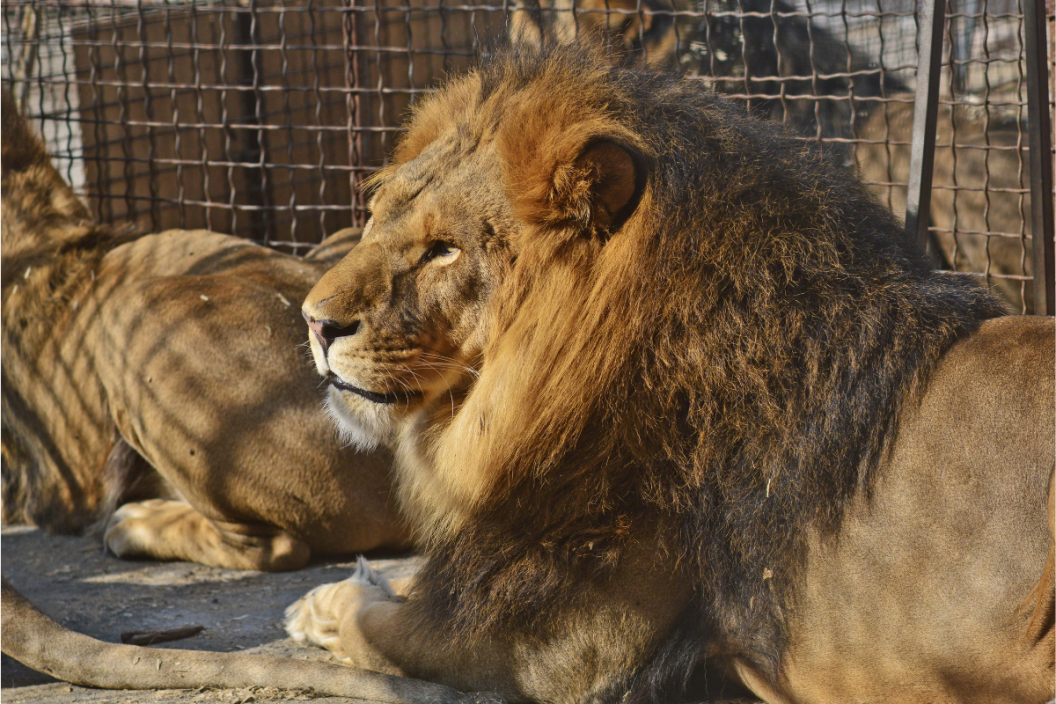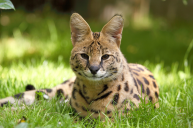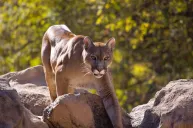Big cats make for popular pets, but is a pet lion better as a wild animal or your new feline friend?
There are many questions to ask yourself when considering owning a pet lion. Obviously, they are very dangerous wild animals who are never truly domesticated. In addition, many states and countries have their own rules when it comes to owning one of these big cats. Therefore, it is essential to check with your specific wildlife regulation.
Shedding Light on Lion Pet Rules
#WatchNow Pet lion seized by Phnom Penh authorities with @WildlifeRescue. The lion is now safe at @PhnomTamao where he will receive the best care. More updates #comingsoon #lion #bigcat #wildlife #wildlifecrime #notapet #animalrescue #endangered #wildlifealliance https://t.co/K9ObxgfDaY
— Wildlife Alliance (@WildlifeRescue) June 29, 2021
RELATED: Animal Lover Rescues Stray Kitten, Discovers it's a Bobcat
Recently, a pet lion in Cambodia was confiscated from a Chinese national's home by Cambodian Authorities. The authorities were alerted to his presence from, of all things, a TikTok video.
According to the environment ministry spokesman Neth Pheaktra, the man imported the lion and planned on raising it in his home. The male lion was 18 months old. The owner had removed the lion's canine teeth and declawed him. Videos of the young lion were taken in a Phnom Penh villa and were posted in late April. In addition, there were many videos of the young lion cub posted on the social media site.
There was even one of the pet lion lounging in the driveway while a small dog happily played close by.
According to the NGO Wildlife Alliance, the home was " inappropriate for a wild animal." While Pheaktra stated, "People have no right to raise rare wildlife as pets."
The big cat was moved to the Phnom Tamao wildlife rescue centre.
Can You Make a Lion a Pet?
https://www.instagram.com/p/3Feb-xKLgR/
Those Cambodian officials made it very clear how they feel about making a lion a pet. But how does the rest of the world handle people wanting to make these exotic animals pets?
Around the world, the majority of countries have said it is illegal to own a lion. Taking a lion out of the wild diminishes a lion's quality of life. Some people want to take the king of the jungle and make it the king of their backyard. In the United States, several states allow people to own these wild cats.
According to the Big Cat Rescue, Alabama, Nevada, North Carolina, and Wisconsin do not have any laws regarding keeping wild animals as pets. Delaware and Oklahoma do not regulate big cat ownership at all.
There are 21 states that completely ban exotic pets that are deemed dangerous, including California. Thirty-five states, including Missouri and Illinois, allow the ownership of exotic cats, including pet lions with applicable licenses and permits, and state/ city-specific rules.
A lot more goes into getting a pet lion than just finding out if your area allows it. You also need to follow the rules of the Captive Wildlife Safety Act, which was passed in 2004. Wild cats cannot be moved across state lines or brought in from foreign countries. But, of course, circuses, zoos, and wildlife rehabilitation centers are exempt.
After considering this, there is also the matter of their habitat, training, and care.
Lion Habitat and Care
END OF YEAR HAND FEED pic.twitter.com/8zpYtRppyw
— Lion Ranch (@LasVegasLions) December 30, 2017
Large cats like lions, cougars, and tigers have set tendencies that cannot be domesticated. They are natural predators native to South Africa and are naturally inclined to roam around wide open spaces. They need a large area to live and play. Their pens need to be fully enclosed, if they're domesticated.
Big Cat Rescue estimates that it costs about $25,000 initially to get started with your wildcat, with likely annual costs of $7,500. Lions and lionesses eat about 13-15 pounds of meat a day and live up to 20 years.
They can also be incredibly protective and aggressive. Even if you raise a pet lion from a baby, its natural instincts can take over. As a result, wild cats can attack their owners, making them one of the most dangerous exotic pets to own. The internet is filled with pics of what pet lions have done to their owners over the years, either with their paws or their jaws.
They also need regular vaccinations. Zoos and rescues vaccinate their lions for many different diseases to keep them healthy. As a pet lion owner, you may have a tough time finding a vet who will vaccinate your big cat. You may have an even harder time finding one to treat your cat in case of an emergency.
The costs and level of danger can be quite prohibitive for potential pet lion owners. If the very high risk of getting a limb ripped off is a bit too much for you, it may be best to admire these majestic cats from afar in nature or by visiting them at a wildlife center or a zoo.
Would you own a pet lion? Tell us on our Wide Open Pets Facebook page!




